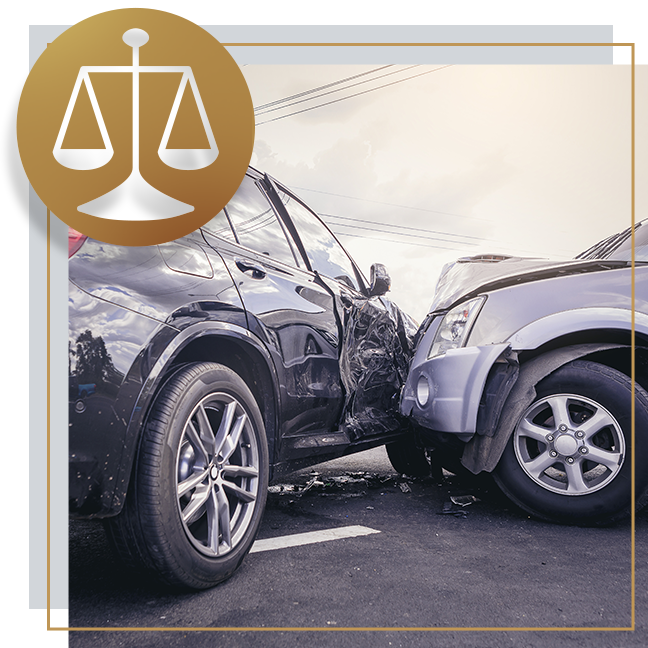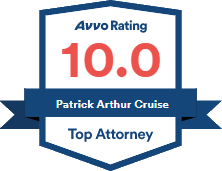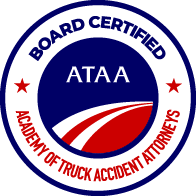
Chattanooga Brain Injury Attorneys
Representing Victims of Brain Injuries in Tennessee, Georgia, and Alabama
Traumatic brain injuries (TBI) pose significant challenges for victims and their loved ones. Personality changes, sensory impairments, and loss of memory or just some of the many consequences someone living with a serious brain injury may face for the rest of their life.
No matter the extent or severity of the symptoms, brain injury victims deserve justice when their injuries were caused by another party’s negligence, recklessness, or wrongdoing. Our Chattanooga brain injury lawyers at The Hamilton Firm have obtained millions of dollars for brain-injured victims in Tennessee, Georgia, and Alabama.
We strive to provide our clients with an exceptional level of personal attention and service, and our compassionate team will work aggressively to secure the maximum compensation you are owed under the law. That starts with acting quickly in our effort to meticulously investigate your situation and preserve important evidence.
With nearly a century of combined experience, we understand how to build a strong, compelling case, and our team will be available to offer support every step of the way.
We operate on a contingency basis, meaning you won't pay any legal fees unless we win compensation for you. Call (423) 454-3288 or contact us online to schedule a free case evaluation.
On This Page:

Trucking and car accidents can take a toll on your life. Our attorneys are here to help you get the compensation you deserve.
We Specialize in Brain Injuries Caused by Car & Truck Accidents
Brain injuries can occur in many ways, but one of the most common causes is motor vehicle collisions. When an accident results in a brain injury, it is often the result of a sudden jolt or blow to the head, which causes the brain to unnaturally move inside the skull and collide with its hard inner surfaces. This type of trauma can produce bruising and swelling of the brain as well as disruption of neural impulses responsible for proper functioning.
Different types of collisions can result in various types of brain injuries. For example:
- Rear-end collisions may cause whiplash injuries, leading to concussions or other traumatic brain injuries due to rapid acceleration and deceleration forces.
- Side-impact collisions (T-bone accidents) can result in occupants' heads striking against the vehicle's interior, leading to contusions or hemorrhages in the brain.
- Rollover accidents can cause occupants to be thrown about inside the vehicle, increasing the risk of head injuries as they collide with the roof, doors, or other occupants.
Common types of brain injuries sustained in motor vehicle accidents include:
- Traumatic brain injury – Traumatic brain injury is a broad category that encompasses various types of brain injuries caused by external trauma. TBIs can range from mild (concussions) to severe (diffuse axonal injury, contusions, intracranial hemorrhages) and can result in a wide range of symptoms and disabilities, including cognitive deficits, motor impairments, sensory disturbances, and emotional changes.
- Penetrating injury – Penetrating injuries occur when foreign objects, such as shattered glass or debris from a motor vehicle accident, penetrate the skull and damage the brain tissue. Penetrating injuries can cause focal damage to specific areas of the brain and may require surgical intervention to remove the foreign object and repair the damage.
- Concussion – Concussions are mild traumatic brain injuries resulting from a blow to the head or violent shaking of the head and body. They can cause temporary disruption of brain function, leading to symptoms such as headache, confusion, dizziness, nausea, and temporary loss of consciousness.
- Contusion – A contusion is a bruise or bleeding in the brain tissue, often caused by the brain striking the inside of the skull during a motor vehicle accident. Contusions can vary in severity and may require medical intervention to reduce swelling and prevent further damage.
- Diffuse axonal injury (DAI) – DAI is a severe type of brain injury that occurs when the brain's nerve fibers (axons) are stretched, torn, or sheared due to rapid acceleration or deceleration forces. DAI can result in widespread damage to the brain and may lead to long-term cognitive, physical, and emotional impairments.
- Skull fracture – A skull fracture occurs when the bones of the skull are broken due to the force of impact in a motor vehicle accident. Depending on the location and severity of the fracture, it can cause damage to the brain tissue and increase the risk of other types of brain injuries.
- Intracranial hemorrhage – Intracranial hemorrhage refers to bleeding inside the skull, which can occur as a result of a motor vehicle accident. Types of intracranial hemorrhage include subdural hematoma (bleeding between the brain and the dura mater), epidural hematoma (bleeding between the skull and the dura mater), and intracerebral hemorrhage (bleeding within the brain tissue).
You should not wait to get legal advice if you or someone you love suffered any level of brain injury because of someone else's negligence. Our Chattanooga brain injury attorneys can evaluate your circumstances and walk you through your rights and options.
Consequences of Brain Injuries
Injuries to the brain can result in long-term physical, cognitive, and emotional effects that may require lifelong medical attention or even a complete lifestyle change. Brain injury survivors also often face great financial hardship due to medical expenses as well as lost productivity related to their condition.
Short-term consequences of brain injuries may include:
- Blood clots
- Coma
- Nerve damage
- Seizures
- Stroke
Long-term impacts of injuries to the brain may include:
- Alzheimer’s disease
- Behavioral changes
- Chronic traumatic encephalopathy
- Cognitive problems
- Communication difficulties
- Mental health problems
- Parkinson’s disease
- Sensory issues
Brain injuries can range from mild cases that may cause temporary cognitive impairment to severe cases that cause permanent damage and even death.
How Long Do I Have to File a Brain Injury Lawsuit?
The amount of time you have to file a personal injury lawsuit will depend on where you sustained your brain injury, as state laws vary. If you were injured in a truck accident in Tennessee, for example, Tennessee’s laws apply.
- In Tennessee, you have only one year from the date you suffered a brain injury to take legal action
- In Georgia and Alabama, you have two years from the date you were injured to start the legal process
Many brain injuries are not initially detectable after an inciting accident or incident. In these scenarios, discovery rules give you additional time from the date you discovered or should have reasonably discovered the brain injury and its cause. In Tennessee and Alabama, you get one year from the date of discovery to bring a claim, while in Tennessee, you get two years.
Common Causes of TBI from Car Accidents
Traumatic Brain Injury (TBI) resulting from car accidents can occur due to several common causes:
- Direct Impact: When the head strikes an object inside the vehicle (such as the steering wheel, dashboard, or windows) or outside the vehicle (such as the ground or another vehicle).
- Acceleration-Deceleration Injuries (Whiplash): This occurs when the head is suddenly jerked forward and then backward, causing the brain to move within the skull. This motion can lead to injuries like concussions or more severe forms of TBI.
- Penetrating Injuries: These occur when objects penetrate the skull and enter the brain. This can happen if debris or objects from the car accident impact the head forcefully enough to break through the skull.
- Rotational Forces: Sometimes the brain can twist or rotate within the skull due to the forces generated during a car accident. This rotational movement can cause shearing injuries to the brain tissue, leading to diffuse axonal injuries (DAI) or other forms of TBI.
- Secondary Injuries: These are injuries that develop over time after the initial trauma, such as swelling of the brain (cerebral edema), increased pressure within the skull (intracranial pressure), or infections.
FAQs About TBI from Auto Accidents
How are traumatic brain injuries diagnosed after a car accident?
Diagnosing traumatic brain injuries (TBIs) resulting from car accidents typically involves a combination of medical history review, physical examination, and diagnostic tests. Doctors may conduct neurological exams to assess cognitive function, reflexes, and coordination. Imaging tests such as CT scans or MRIs can help identify structural damage to the brain and pinpoint the location and extent of the injury. Prompt and accurate diagnosis is critical for determining the appropriate course of treatment and managing potential complications.
Are there any long-term considerations for individuals who have suffered traumatic brain injuries?
Beyond the immediate recovery period, individuals who have suffered traumatic brain injuries (TBIs) in car accidents may face long-term considerations that impact their quality of life and daily functioning. These can include ongoing cognitive deficits such as memory impairment and difficulty with executive functions like decision-making and problem-solving. Physical disabilities, including mobility issues and chronic pain, may also persist. It's important for individuals and their support networks to plan for long-term care needs, including accessing specialized medical services and community resources.
What are the risk factors for poor outcomes or complications following traumatic brain injuries?
While outcomes following traumatic brain injuries (TBIs) sustained in car accidents can vary widely, certain factors may increase the risk of poor outcomes or complications. These can include the severity of the initial injury, the presence of multiple injuries or medical comorbidities, older age, and pre-existing neurological conditions. Additionally, delays in receiving appropriate medical care and rehabilitation services can impact recovery outcomes. Identifying and addressing these
How can family members and caregivers support someone recovering from a traumatic brain injury?
Family members and caregivers play a crucial role in supporting the recovery of someone who has sustained a traumatic brain injury (TBI) in a car accident. Providing emotional support, encouragement, and understanding can help the individual cope with the challenges they may face during their recovery journey. Assisting with daily activities, attending medical appointments, and advocating for the individual's needs within the healthcare system are also essential tasks. Educating oneself about TBIs and participating in caregiver support groups can provide valuable resources and guidance.
Resources for TBI Victims in Chattanooga
Here are several organizations in Chattanooga, TN, that provide support for Traumatic Brain Injury (TBI) victims:
- Erlanger Health System Neurosciences Institute: Offers comprehensive care and support for neurological conditions including TBI.
- Siskin Hospital for Physical Rehabilitation: Provides specialized rehabilitation services for individuals recovering from TBI and other neurological injuries.
- Tennessee Brain Injury Association (TBIA): Statewide organization that offers support groups, resources, and advocacy for individuals affected by TBI.
- Chattanooga Area Brain Injury Association (CABIA): Local chapter of the Brain Injury Association of America (BIAA) providing support and resources for TBI survivors and their families.
- Signal Centers: Offers various services including rehabilitation and support programs for individuals with disabilities, including those with TBI.
These organizations can provide valuable support, resources, and information for individuals and families dealing with TBI in the Chattanooga area.


Our Pledge To Our Clients
-
Not Just a Case Number – Personal Attention, Every StepOur boutique firm treats you like family, providing one-on-one care and attention tailored to your unique needs.
-
Maximize Your CompensationWe fight for every dollar you deserve. While you focus on healing, we’re dedicated to securing the maximum recovery for you.
-
Specialized Accident ExpertiseOur board-certified trucking attorneys bring top-tier expertise to complex cases, achieving superior results for our clients.
-
Free Consultations, Available 24/7Get started with a no-cost case evaluation to learn your options—because we’re here for you around the clock.
-
No Fees Until We WinYou pay nothing until we secure a successful outcome. Your recovery is our top priority, and we’re committed to seeing it through.
-
Aggressive Representation When It CountsWe stand up to insurance companies and are ready to take your case to court—whatever it takes to get what you deserve.


What Damages Can I Recover for a TBI?
A personal injury lawsuit is meant to put you back in the financial position you were in before you sustained your brain injury. This means you can secure compensation for both quantifiable expenses related to the injury (economic damages) as well as money for other consequences resulting from your condition (non-economic damages).
Our Chattanooga brain injury lawyers will vigorously fight to get you full compensation for all losses, including:
- Past, current, and future medical expenses
- Lost income
- Reduced earning potential
- Long-term impairment and disability
- Loss of consortium
- Pain and suffering
- Disruption to your life
When you contact our team at The Hamilton Firm for a free evaluation, we can assess your case and help you understand what you can expect to recover.
If you or someone you love is suffering from the consequences of a brain injury caused by someone else, do not hesitate to explore your legal options with our team. Call (423) 454-3288 or contact us online today to learn more.




.2411141259535.png)




